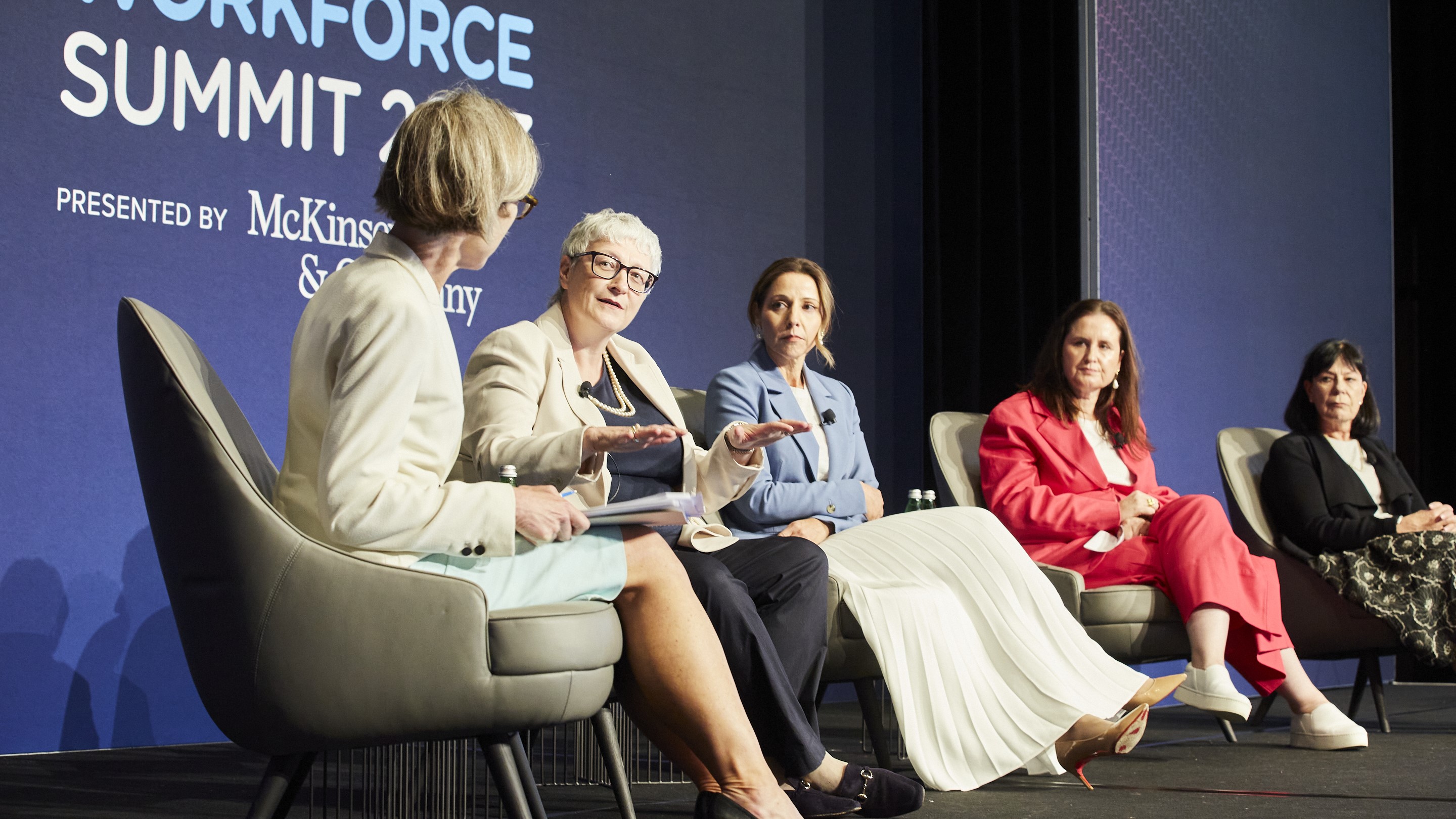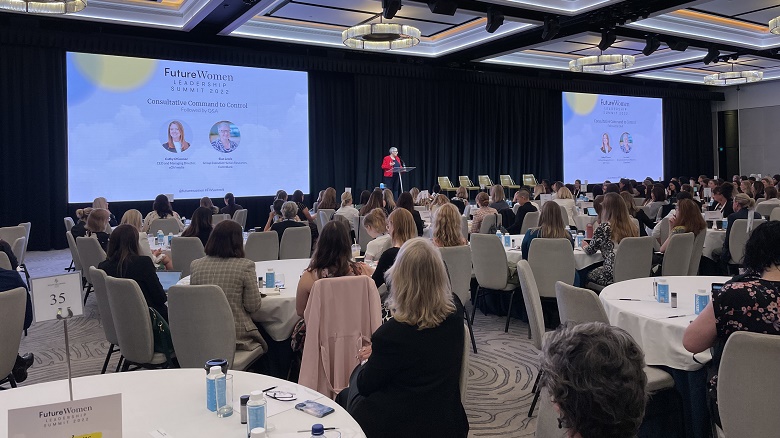CBA’s focus is to maximise the development of capability across the organisation through a culture where people want to continually learn and develop.
“We have to use our internal job market because they are a huge resource of future skills. For example, to address data and analytics skills, we've deployed just under 100 people from our branch networks to become data analysts,” Ms Lewis told attendees.
“In data and analytics, we fill 47 per cent of our vacancies internally,” she added. “We make sure we've got proper career mobility, and that we're giving people training internally, it is crucial.
“We have a team dedicated to taking a strategic approach to reskilling and co-coordinating programs end to end.
“That is what is so great — you have the opportunity to evolve and learn,” she said. “We are able to offer career-growth opportunities in an organisation of our scale. We’re operating in different sectors requiring a wide variety of skills and abilities and therefore are able to offer different careers which you would not normally associate with a bank.”
CBA’s initiatives to invest in skilling Australia, developing a talent pipeline and addressing the rescaling agenda are also important to closing the skills gap.
Ms Lewis reinforced the role of business and universities working together in response to changing needs of industry and the community.
“We’re sponsoring people through university degrees,” she said. “For example we've set up a security diploma with the University of New South Wales. We're also working closely with the University of Wollongong, UTS and Griffith University to look at how we can build the kind of courses and curriculum that fill some of these gaps. We’ve set up tech hubs in every capital city to work with the universities there and link closely to them.
“And so how do we maximise the supply into the areas that we want at universities and how do we work with all of the further and higher education segment on flexibility, rescaling and retraining, whether you're employed or unemployed?
“We need to make sure that courses being delivered, right back to the high school curriculum, prepare our young people to come out and do jobs that will exist in the next 20 years.
“I think it's going to be a really long term partnership between government, organisations and the education system to make sure we get people learning skills, not just as undergraduates, but going back into the formal education sector as they move through their careers.”
Ms Lewis said companies need to think of their employees as a long-term partnership.
“Employees are an investment; organisations need to get the balance and flexibility right,” she said.
“It is about being fit for the new world of work.”
Image credit: Natalie Boog, Australian Financial Review.





